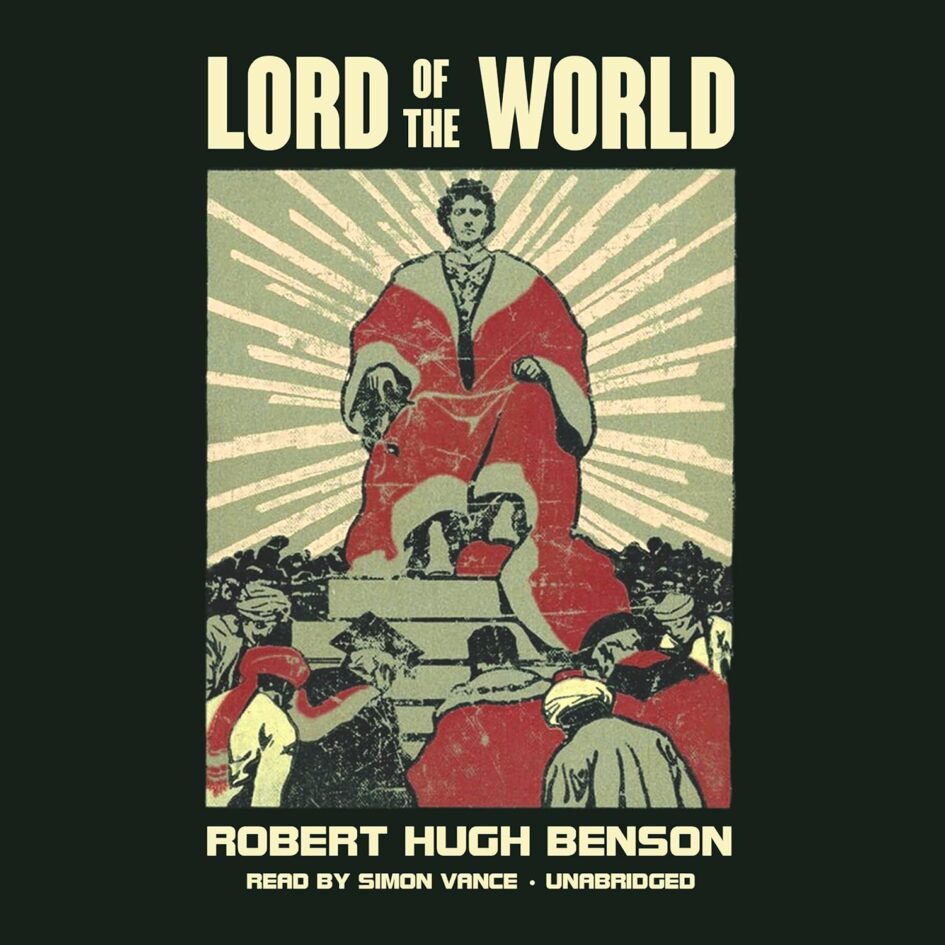Robert Hugh Benson’s Lord of the World, published in 1907, is a pioneering work in the genre of dystopian literature, predating both Aldous Huxley’s Brave New World and George Orwell’s Nineteen Eighty-Four. This novel stands out for its prophetic vision of a future where secular humanism and a one-world government clash with traditional religious faith, particularly Catholicism.
Benson’s prose is of high literary quality, offering a compelling narrative that blends theological speculation with a vivid, if somewhat dated, depiction of the future. The setting is a world where technology, primarily in the form of trains rather than the automobiles or other modern conveniences we might expect, has advanced society into a new era. However, the true heart of the novel lies in its exploration of spiritual and moral dilemmas rather than technological ones.
The plot revolves around the rise of Julian Felsenburgh, a charismatic figure who emerges as a global leader promoting peace and unity but at the cost of religious freedom, essentially leading to a form of secular totalitarianism. Opposing this is the Catholic Church, portrayed by Benson as an uncorrupted bastion of faith, which starkly contrasts with the reality of the 20th century where internal strife and external pressures did indeed alter the Church’s landscape in ways Benson did not predict.
Benson’s vision of the future includes several prescient elements, such as the consolidation of power into a global entity, the decline of personal faith in favor of a collective humanistic ideology, and the use of mass media and political manipulation to control public opinion. However, his technology predictions, while charmingly nostalgic, are less accurate, reflecting the early 20th-century imagination rather than actual technological development.
The novel also serves as a thought-provoking exploration of apocalyptic themes from the Book of Revelation, particularly focusing on the figure of the Antichrist. Here, Benson’s interpretation is both imaginative and deeply rooted in Christian eschatology, making Lord of the World not just a dystopian novel but also a theological discourse.
Critically, while Benson’s depiction of the Catholic Church as untouched by external influences might seem overly idealistic, it underscores his narrative’s core message about the resilience and purity of faith amidst adversity. This aspect might be seen as a limitation by modern readers aware of historical developments within the Church, yet it adds to the dramatic tension of the story.
Overall, Lord of the World remains a fascinating read for those interested in early dystopian fiction, theological speculation, or anyone looking for a historical perspective on how the future was once imagined. It’s an entertaining, if somewhat somber, journey into a possible future where the battle for the soul of humanity reaches its zenith. Benson’s work, while not as widely recognized as some of its successors, deserves recognition for its originality, depth, and the quality of its narrative execution.
 The Libertarian Catholic
The Libertarian Catholic
















